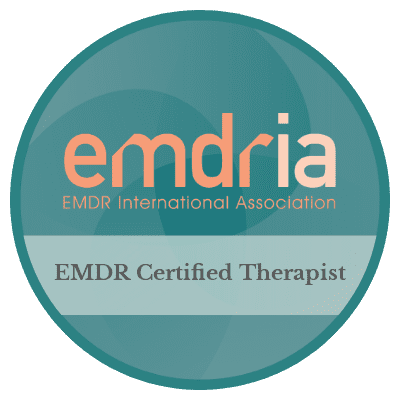EMDR Therapy
Eye Movement Desensitization and Reprocessing (EMDR) is an integrative and powerful therapeutic technique that has been extensively researched and proven to be an effective treatment for both past and recent traumatic experiences. EMDR can also be used to resolve other problems related to disturbing past experiences, such as anxiety, phobias, grief, and depression. EMDR has helped millions of people of all ages and backgrounds relieve many types of psychological stress. I am a certified EMDR therapist.
I use EMDR to help with:
How It Works:
Traumatic memories are stored in the brain differently from other negative life experiences. When trauma occurs, it gets locked in the nervous system in its original, disturbing form in the right hemisphere of the brain. The left hemisphere of the brain contains important thoughts and awareness that could relieve the distress of trauma if a connection can be made between the two brain hemispheres. EMDR allows this connection to occur by stimulating both brain hemispheres simultaneously through the use of alternating tones and vibrations. This process unlocks the nervous system and allows the mind and body to rapidly process the experience, reduce the emotional charge attached to it, and create measurable changes in the emotional centers of the brain and nervous system.
I typically spend the first 1–2 sessions getting to know you and learning about the issues you'd like to address before doing the resourcing and processing of EMDR. The kind of difficulties, the number of experiences, and your life circumstances all factor into how many EMDR sessions you may need. EMDR can be used as an adjunctive therapy with another therapist, in conjunction with talk therapy, or as the treatment itself.
How It Can Help:
EMDR has been endorsed by the American Psychiatric Association, the World Health Organization, and the Department of Veterans Affairs as an effective treatment for trauma. Research demonstrates that EMDR effectively resolves a variety of symptoms associated with traumatic experiences, including irritability, emotional volatility, unmanageable anxiety, intrusive thoughts, nightmares, difficulty falling or staying asleep, difficulty concentrating, memory impairment, excessive guilt, shame, and chronic health problems. The rapid memory processing in EMDR reduces the disturbing emotions, bodily sensations, and negative beliefs associated with traumatic experiences by changing the way the traumatic memory is stored in the mind and body. Clients are often surprised at how quickly long-standing issues can be resolved.
Following EMDR sessions, clients often report finding the ability to live more fully in the present without the intrusion of pain or fear from the past. Feeling more joyful, curious, grateful, and balanced, as well as an enhanced sense of overall well-being, are also benefits that clients commonly describe.
